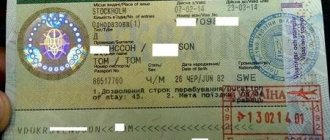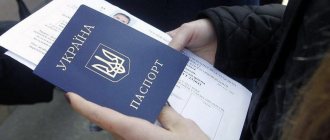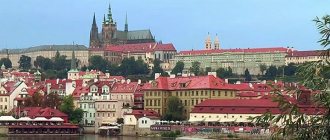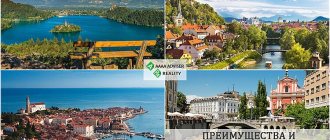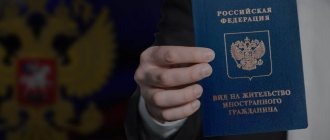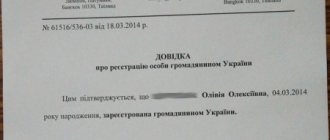Migration policy of Poland
The authorities of the Republic of Poland make changes and amendments to the country’s legislation every year that regulate the process of obtaining a residence permit.
Since 2021, immigration to Poland has become more accessible and feasible. This opens up new horizons for foreigners in terms of employment and education.
One of the most important amendments to the law on obtaining a residence permit in Poland is the simultaneous receipt of a residence permit and a work permit. Although previously, these were two separate processes. An additional advantage will be that the validity of the residence permit has been increased to 3 years, previously such a document was valid for 2 years. But it is worth remembering that, having decided to change his place of work, the foreigner will have to change his residence permit, since it was issued on the basis of a different work permit.
Foreigners who have completed full-time studies in the Republic of Poland have the right to work in Poland without a permit.
Immigration to Poland has become more widespread recently, also because now you can apply for a residence permit immediately upon arrival in the country.
Reasons for refusal to issue a residence permit in Poland
The decision to refuse a residence permit must be based on the norms of Polish migration legislation. In practice, the following situations are common, threatening deportation from the country and revocation of the right to reside in the country if it is issued:
- entering into a fictitious marriage without the intention of starting a family;
- falsification of documents, forgery;
- reporting false information to migration service employees;
- disagreement with the submission of biometric data;
- discrepancy between the dates in the application, for example, the rental or training contract ends earlier than the period for which the residence permit is requested;
- ignoring requirements to provide missing documents or correct them.
After receiving a refusal, the applicant has the right to submit an application after 30 days or go to court with a complaint against the actions or inaction of employees of the Polish Migration Service. The second option happens extremely rarely.
Types of permits for residence permits in Poland
Permit for residence permit based on employmentA foreigner who plans to work in Poland must obtain a work permit. Such a document will be valid for 3 years, unless the place of work is changed. This type of permit confirms the migrant’s right to work in Poland with an employer (or several) and the conditions specified in the invitation to work.
Blue card is a permit for a residence permit for the purpose of employment that requires high qualifications. High qualifications are acquired after completing five years of study at a university. A blue card is issued for no longer than 3 years, but 3 months longer than the period of employment.
Permission for a residence permit for the employment of posted foreigners
Permission for a residence permit for foreigners for the purpose of starting and running their own business in Poland
Permission for a residence permit for foreigners for the purpose of obtaining higher education in Poland
Permission for a residence permit for foreigners for the purpose of conducting research in scientific activities
Permission for a residence permit for family members of a foreigner who resides in a country with a residence permit status
How to move to Poland without pain and a Pole's card. A simple guide for Belarusians
- 18409
- 17 November 2021, 09:49
- Poland movinginteresting to knowguide
So, you are thinking about moving to Poland. You probably already know the answer to the question “why?” For some it’s studying, for others they dream of a better salary, and for others they just want to live in a more fulfilling Europe. Kyky.org, together with the Polish Institute of Civil Cooperation, have prepared detailed instructions on how to move to Poland without stress and nightmares at night.
Step 1. Learn Polish
Some say that “learning a language” should be the first item on the to-do list when moving. Others say that you can learn it on the spot, repeating phrases after neighbors and even coffee machines. Still others generally believe that one can live without knowing Polish. No matter what you choose, in any case (except the first) you will encounter language discomfort, and it is better to get rid of it in advance. If you don’t want to get lost among signs and store labels, confusing milk with kefir, it’s better to take care of basic linguistic knowledge before packing your bags.
Belarusians are lucky: learning Polish is extremely easy - if you want, you can master the language in three months. Offline and online courses lasting three to six months and tutors are available. There are also free options - self-study using Youtube and mobile applications or courses at the Polish Institute. If the first option is suitable for those who are very purposeful and disciplined, then the second option is suitable for those who are more or less lucky. The Polish Institute recruits students once a year, in June, selecting participants on a competitive basis. The program itself lasts two years and provides knowledge on the history, geography and cultural traditions of Poland. The only costs for such a course are textbooks and your time.
Step 2. Collecting documents
There are two ways to legalize yourself in Poland: get a Pole card or a residence permit. Let's figure out which one is suitable for whom.
To receive a card that opens the door to Europe, you must have at least one relative whose documents indicate the nationality of “Pole” or “Polish.” By the way, searching for a birth certificate can not only bring you closer to your family, but also help you create a family tree and find out that there were lords and ladies in your family.

But family ties are not the only chance for a Polish green card. If you speak Polish fluently, know all the holidays and cultural features of the country, and have three years of active participation in Polish society (be it a Polish school, university, work or NGO), then you too can qualify for the coveted card.
Once you have realized that you meet one of the previous points, you need to schedule an interview with the consul. And this is where the Polish you learned in a hurry will be very useful to you, because the recording is made in it. The time when you can reach the secretary is indicated on the website of the Polish Embassy. Over the phone you will be asked to provide your first name, last name, telephone number and documents confirming your Polish kinship.
To the interview itself, you need to bring these documents (make a copy), plus the original and a copy of your passport, a photograph and a completed application. And also prepare for the consul’s questions. You may be asked about the voivodeships, rivers, lakes of Poland, which famous Polish figures you know, how your day was (here you need to show that you know everyday vocabulary), asked to recite the national anthem by heart, or tell why you want a Pole’s card. The ideal answer to the last question is: “I want to live, study or work in my historical homeland.”
After receiving a Pole's card, you need to obtain a national visa, with which you can not only live in Poland, but also study and work. This is a free procedure if you submit documents to the Consulate itself, but through the visa center it costs 15 euros.
What if I have no relatives or connections with Poland?
If there is no blood or active connection with Poland, you have a whole list of options for legal emigration.
Option one is labor migration. To do this, you need to find a job in Poland and ask the employer to send an invitation with which you will receive a visa. After living in the country for three months, you can apply for a residence permit, the so-called “residence card,” which costs $150. Now it will be more difficult to obtain due to the influx of emigrants, but with a residence permit you will be free from bureaucratic red tape for three years.
Option two is study. You enroll in a university, show your invitation at the Consulate, receive a visa, then a residence permit. It's simple! But it is not necessary to go for a one-year master's degree or a four-year bachelor's degree. You can consider studying at a police school - it’s like our college, that is, an educational institution where you can enter immediately after high school and receive a specialized education. There you can study for a year or two, for example, to become a florist, massage therapist, dentist, or manicurist.

There are such schools in all major cities, and directions can be paid or free. To enroll, you need a passport, a school certificate translated and certified by a notary, a medical certificate and two photographs.
There are Polish language courses at police schools, so if you have basic knowledge, you can improve it to a decent level. But you can also enroll in individual language courses that last more than 90 days. This may also be the basis for obtaining a D visa.
There is another option to obtain Polish documents - the “Good Start in Poland” program from the Polish Institute of Civil Cooperation Travel House. You can go to Wroclaw for three months or a year, live in coliving (rooms start from 15 euros per night), attend lectures on opportunities for expats, learn life hacks that will help you assimilate, go on excursions and go to meetups, volunteer in various NGOs or media. And the main thing is to obtain documents for legalization. The organizers of the program - the Polish Institute of Civic Cooperation and the Toruń Civic Initiative Foundation - will issue you with a certificate of enrollment in the course and a Volunteer Agreement, which are the basis for obtaining a national visa or residence permit for the entire period of study.
Way to obtain a residence permit No. 3 - marriage to a Pole or Polish woman. It can be used if, for example, you met a person who lives in Poland through Tinder and fell in love. But fictitious couples are declassified quickly - it’s not worth the risk. If this is your option, then the tactic is this: you get a visa, after three months in Poland you apply for a “residence card”. But remember, if your family ties are less than a year old, then the Voivode may issue a card with which you will not be able to legally work.
The last way is to open a business in Poland. This can be done online, but the site is in Polish, so it’s worth reading the first point of our guide again. You select up to 10 activity codes, and after three to ten days you receive an extract from the court register - that’s it, the company has been created! Registration with the tax office occurs automatically. Based on this extract, you apply for a D visa and then receive a residence permit, but only if the company has a regular income of at least 200 euros per month. Unlike many European countries, in Poland there is no need for huge investments in the country's budget or the mandatory purchase of real estate - moreover, to register and open a bank account, you only need a passport.
Step 3. Looking for a job and preparing a resume
It doesn’t matter whether you have a “Pole’s card”, which allows you to search for work upon arrival, or you are considering labor migration - it is better to study the job market in advance. Polish employers willingly invite Belarusian specialists. In 2014, there were only 4,017 registrations of Polish employers about their readiness to hire Belarusians, and in 2021 there were as many as 58,046. Well, on January 1, 2021, the employment scheme for Belarusians was simplified - when inviting them to seasonal work in agriculture or tourism (up to 9 months) and for short-term (up to 6 months) non-seasonal work you do not even need to obtain a work permit. Things have also become easier in other professional areas. From August 2021, young people under 26 years of age are completely exempt from paying taxes in Poland.

Photo: Nadia Lee Cohen
You can look for vacancies in Wroclaw, the Polish capital of IT. There are offices of Google, Nokia, IBM, HP. Having confident English and native Russian, for starters, you can get a job in a call center of a large corporation and receive $800, plus quarterly and language bonuses for working in a language other than Polish. If you speak French or Dutch, you can count on a thousand a month. But remember about income tax of 18% and contributions to the social security fund of 13%.
You can search for vacancies in groups on VKontakte, Linkedin and on the following websites:
pracuj.pl, praca.pl, jobs.pl, randstad.pl (you can search in English), interkadra.pl, infopraca.pl, gazetapraca.pl, gowork.pl, gumtree.pl.
As soon as you have found a suitable offer, send your already prepared resume. It should impress the employer so that he wants to hire you, and not a Pole, with whom there will be fewer paperwork issues. If they like you at this stage, you will be offered an interview by phone or Skype. And having received an invitation, you can safely go to the embassy for a visa.
Step 4. Looking for an apartment
You are a legal migrant, which means it’s time to start looking for housing. This is not so easy to do - traditionally, people do not really want to rent out housing to visitors, plus, for remote searches to be successful, you need to know Polish to correspond with the owner.
The average price for a room in Warsaw is 200 euros, for an entire apartment – 500-900. For example, in Gdansk, a three-room apartment costs 650 euros per month (utilities are already included), a two-room apartment near the center of Wroclaw costs 500 euros. In Lodz the same amount, but it will include all additional fees. You need to remember about the deposit that the landlord will require - usually two months' rent in advance.
Belarusian expats do not recommend contacting real estate agencies, because there is no point in overpaying for searches, and it’s easy to stumble upon an unscrupulous service. You can search on the websites yourself: gratka.pl, olx.pl, gumtree.pl, otodom.pl.

There is also an option for those who prefer spontaneous moves without prior preparation - find an apartment in Poland. In this case, you can live in a hostel (Booking and Airbnb can help) or in a hotel. And if you have identified Wroclaw as your final destination, then choose Travel House co-living https://travelhouse.info/ru, which is located 10 minutes from the historical center. There are several room options depending on the price and number of people: there are rooms for couples, companies and budget rooms for backpackers.
Step 5. Calculate the budget and airbag
Renting a home is the largest, but not the last expense. You also need to budget for food. Belarusians living in Poland agree on one figure – at least $200 a month for groceries. Another $50 will be spent on communications (Internet and telephone), plus unforeseen expenses - $200. As a result, the first month will cost about $1,000. Even if you are traveling at the invitation of your employer and start working immediately, you need a safety net equivalent to your Belarusian expenses for two to three months. Don’t think that you can save money; the experience of many migrants shows that in the first months it is impossible to live without major expenses.
Step 6. Pack your things in your suitcases and buy a one-way ticket
Before leaving, it is important to undergo all medical examinations - do not waste time and money on this. In Poland there is insurance medicine. It’s good if the company inviting you provides you with insurance - this rarely happens, especially since they definitely won’t cover your dentist. But if you are going “to nowhere”, thinking that you will figure it out on the spot, then checking your health before the trip definitely won’t hurt. Additionally, pack a first aid kit with everything you need, because Belarusian medicines are cheaper. And those that a doctor will prescribe to you in Poland will be sold without a prescription here.

An important question: what to take with you? Some say that you need a minimum of things, because all the towels and pots can be bought extremely cheaply at Ikea, others say that you need to take everything at once so as not to waste money. The decision is yours. But remember: you can listen to other people’s advice, but the main thing is not to forget to calculate your personal risks and try to neutralize them in advance.
Advantages of a residence permit in Poland:
Legal employment in all EU countries
Buying real estate in Poland
Buying a car in all EU countries
Obtaining quality secondary and higher education in all EU countries
Opening and running your own business in Poland
Using Polish medicine
The right to invite a foreigner for a visit
Obtaining permanent residence and citizenship
According to official data from Eurostat, Ukraine took first place in the number of temporary or permanent residence permits issued in the EU countries - 303 thousand people. Second place was taken by US citizens - 199 thousand citizens, in third place were migrants from China (170 thousand). According to the same data, citizens of the Russian Federation were in eighth place with a figure of 74 thousand.
What documents are needed to obtain a residence permit in Poland?
A similar package of documents is provided for all citizen migration programs. It may be slightly modified in individual situations, which will be further communicated when submitting an application, but in general the package of documents includes the following documents;
- Application form for obtaining a residence permit, prepared in 4 copies, filled out in Polish,
- A copy of a foreign passport,
- Health insurance policy, which is valid abroad,
- Photograph according to embassy requirements 3.5 by 5 cm, 4 pieces,
- Bank account statement or income certificate, the minimum level for a person is 634 gold, which is equivalent to 140 euros; when close relatives move, this amount increases by another 514 gold for each family member.
- Documents for residential real estate in Poland (lease agreement, certificate of ownership, purchase and sale agreement),
- A document providing the basis for staying in the country (certificate from the place of study, work, business plan, marriage documents, kinship, etc.),
- A document confirming payment of the state duty,
Grounds for obtaining a residence permit: who is eligible?
Every foreigner who wishes to reside in Poland has the right to obtain a temporary residence permit in the country, on the following grounds:
Legal employment or internship in Poland
According to statistics, most often foreigners receive a residence permit in Poland on the basis of employment.
To obtain a residence permit in Poland, you will need to provide an official invitation to work from an employer, on the basis of which a foreigner will be able to stay in the country for up to six months. At the end of this period, it is possible to extend the residence permit for another year, upon the same invitation. Having lived in the country with a residence card, the applicant can apply for permanent residence and then Polish citizenship.
Recently, the number of Ukrainian emigrants has increased. In this regard, Poland has simplified the conditions for them when obtaining a work permit.
According to Eurostat, in 2014, 206 thousand Ukrainians received residence permits in different EU countries thanks to official employment. Eurostat notes that this is 70% of the total number of residence permits issued. Thus, Ukraine topped the ranking of residence permits received due to employment in EU countries. For example, 12.9 thousand people moved from Russia to work in one of the EU countries.
Education
Admission to a school or university in Poland is the basis for obtaining a residence permit in Poland.
Compared to other EU countries, education here is more accessible from a financial point of view. Therefore, many foreigners strive to enroll here. To obtain a residence permit in Poland, on this basis, it is required to provide documents indicating that the applicant is enrolled in an educational institution in Poland. Throughout your studies, the residence permit will be automatically renewed annually.
The Polish authorities provide free places for training for foreigners who have a Pole Card.
Business
A temporary residence permit, based on commercial activity, is issued for a period of 8 months, after the expiration of which the foreigner has the right to extend the residence permit for a year. Having lived in the country for five years with a residence permit status, it is possible to apply for permanent residence in Poland and obtain a European resident card.
Marriage to a Pole
Legal marriage with a citizen of the Republic of Poland is a legal basis for obtaining a residence permit. To do this, the applicant must prove with documents that the marriage is not fake. Having been married in the country for three years with a residence permit and two years with permanent residence, a foreigner can apply for Polish citizenship.
Documents for a residence permit in Poland
As you already understand, the only conditions for obtaining a residence permit in Poland are documents. Required documents for a residence permit:
- international passport;
- application for a residence permit;
- photo 35x45 mm;
- receipt of payment of the consular fee for consideration of the application;
- insurance;
- documents confirming financial solvency;
- confirmation of the reason for living in the country (invitation to work, certificate from a Polish educational institution, etc.);
- other documents.
This is only the main list of documents that you will have to prepare for submission to the consulate. You can find out in more detail about the procedure and other necessary documents for obtaining a residence permit, as well as receive qualified assistance in their formation with the help of the employees of the Tour-Partner company.
What does a residence permit provide?
Even a temporary residence permit for Ukrainians in Poland opens up great opportunities. Main advantages of a residence permit:
- practically unlimited period of residence in Poland;
- Full time job;
- the right to open your own business;
- a chance to get an education at one of the state universities;
- the opportunity to see your wife (husband), relatives, friends, and acquaintances who are Polish citizens more often;
- other significant advantages.
Advantages of cooperation with our company: how we can help in obtaining a residence permit in Poland
By collaborating with us, you will achieve the desired result. Many years of experience show only positive results and allow us to talk about a 100% guarantee of results. Working in tandem with International Business, you won’t have to worry about anything, because highly qualified lawyers will do everything at the highest level. Our range of services consists of the following stages:
Free legal advice
Conclusion of an agreement between the parties
Collection and preparation of the required documents for their submission for obtaining a residence permit in Poland
Sign up for submission of documents
Controlled process when obtaining a residence permit in Poland
Registration of an insurance policy

